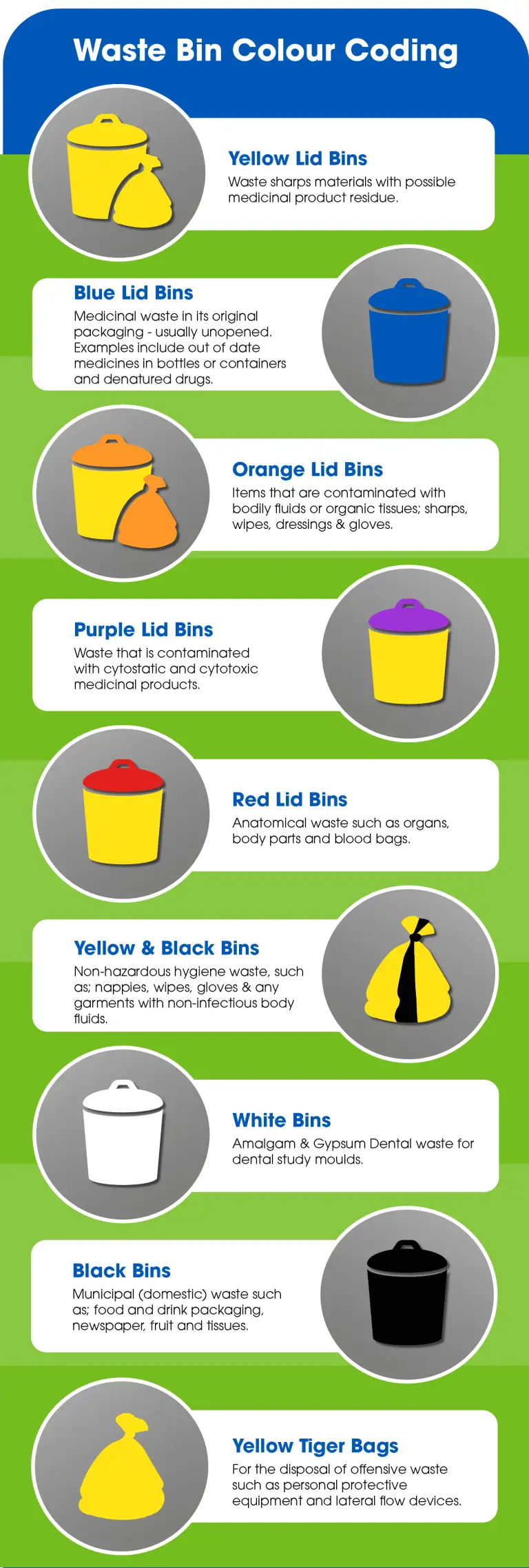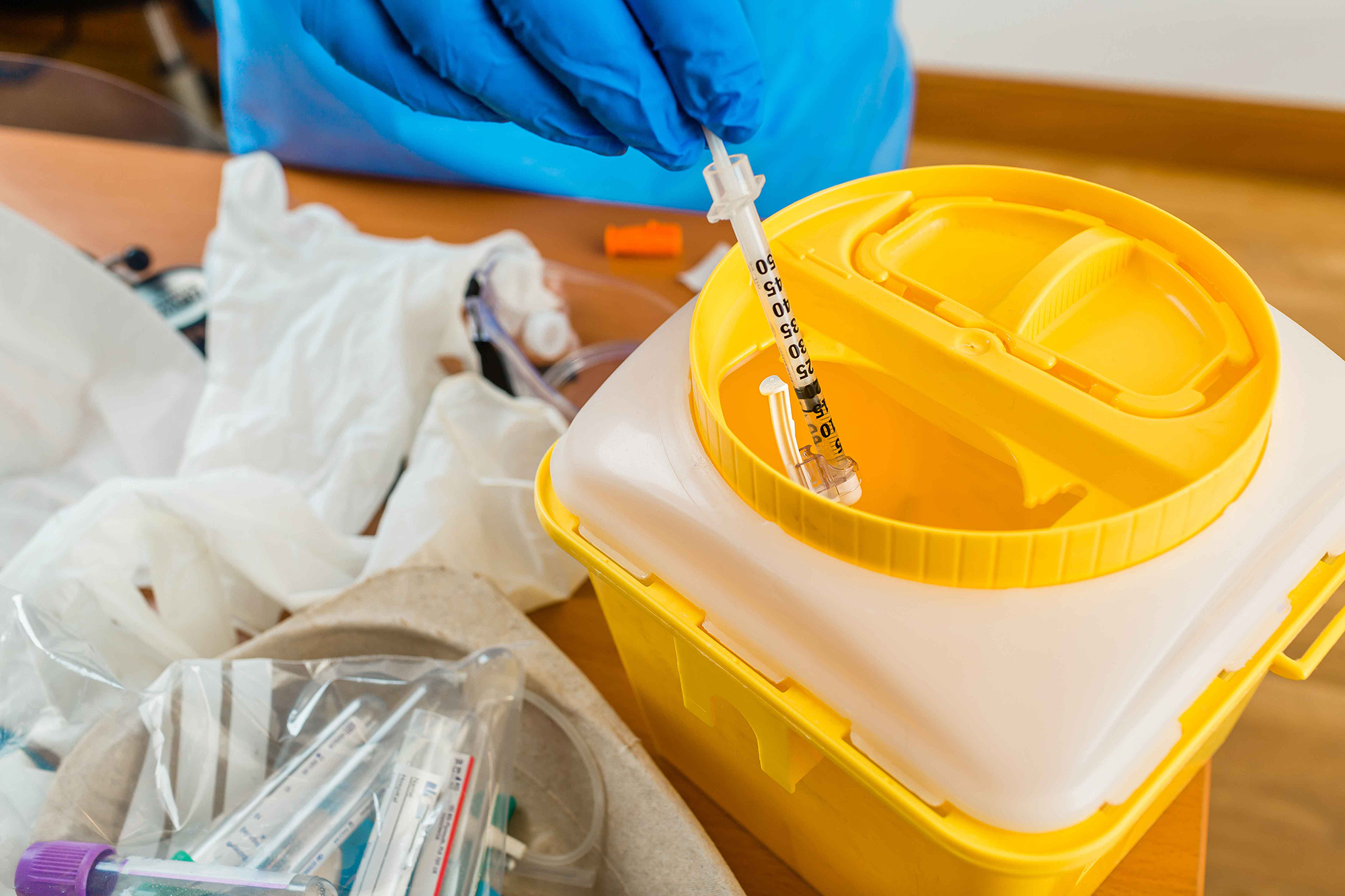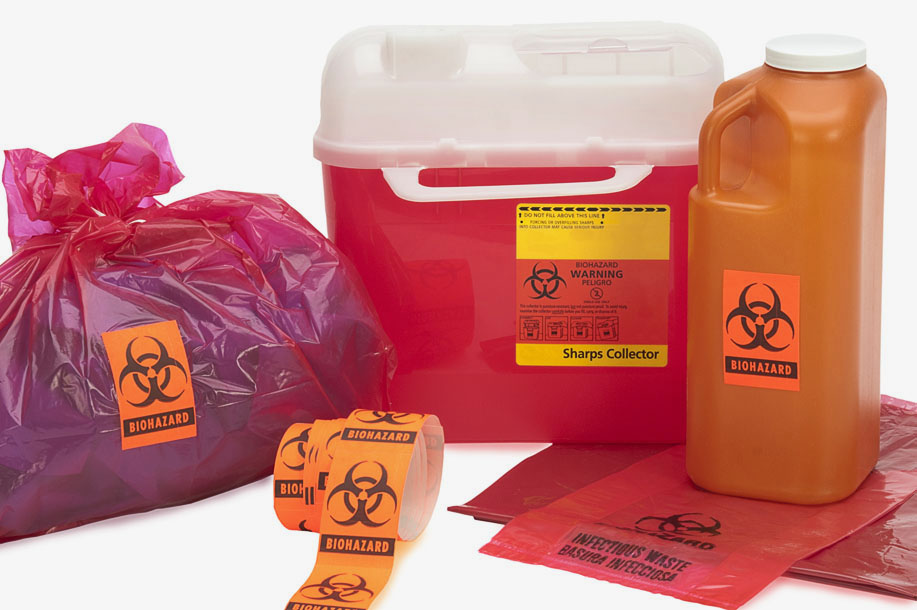Streamlined Medical Waste Disposal Services: Concern for Public Health
Streamlined Medical Waste Disposal Services: Concern for Public Health
Blog Article
Navigating Medical Waste Disposal: Vital Providers for Healthcare Facilities
Medical care centers, whether huge healthcare facilities or little facilities, are handed over with the responsibility of handling, treating, and disposing of a wide selection of medical waste streams. Recognizing the necessary solutions that support clinical waste disposal is not just a matter of conformity yet likewise a basic element in securing public health and ecological well-being.
Regulatory Compliance Assistance
For healthcare centers, making sure regulatory compliance support is important to preserve appropriate handling and disposal of medical waste. By partnering with regulative conformity specialists, healthcare facilities can remain updated on evolving regulations, reduce risks connected with improper waste disposal, and eventually add to a safer and much more lasting environment for all.
Waste Partition Assistance

Medical care facilities should supply clear guidelines and training to personnel on exactly how to segregate waste efficiently. This includes separating general waste from hazardous materials such as sharps, infectious waste, pharmaceuticals, and chemical waste. Color-coded containers, tags, and signs are commonly utilized to aid in waste segregation techniques. Regular audits and surveillance of waste partition procedures are important to identify any type of problems and make needed improvements.
Collection and Transportation Providers

Correct collection and transport solutions are crucial components of the clinical garbage disposal process in health care centers. These services make sure that hazardous products are handled safely and in compliance with policies to shield both the setting and public wellness. Medical care centers count on specialized waste management companies to give efficient collection and transport solutions tailored to their requirements.
Medical waste collection includes segregating different kinds of waste at the factor of generation, utilizing color-coded containers or bags to compare basic, dangerous, pharmaceutical, and various other waste streams. Educated workers have to perform this job to avoid contamination and make sure correct disposal. When collected, the waste is moved in specialized vehicles geared up to deal with harmful materials securely. These cars abide by stringent safety and security standards and comply with assigned routes to qualified therapy facilities for disposal through approaches such as sterilization, incineration, or landfilling.
Treatment and Disposal Solutions
In the realm of medical garbage disposal for medical care facilities, after the essential phase of collection and transportation solutions, the focus changes in the direction of implementing efficient treatment and disposal solutions. Treatment options often involve procedures such as autoclaving, which uses heavy steam under stress to sterilize the waste. This technique is frequently utilized for contagious waste that has to be made non-hazardous prior to disposal. An additional widespread treatment method is incineration, where waste is subjected to high temperature levels in controlled setups to minimize its quantity and eliminate virus.
Disposal remedies include the last action in the clinical waste monitoring procedure. Recycling and resource recovery are additionally acquiring traction as sustainable disposal options for particular kinds of clinical waste products.
Effective therapy and disposal remedies are vital in guaranteeing compliance with guidelines and protecting public health and the environment. Medical care centers need to meticulously review and pick ideal methods that straighten with their waste administration goals and sustainability initiatives.
Staff Training and Education

To efficiently take care of medical waste disposal in medical care centers, comprehensive team training and education play a crucial role in guaranteeing adherence to regulative demands and preserving a secure environment. Appropriate training furnishes personnel with the understanding and abilities needed to take care of various kinds of clinical waste, segregate them properly, and package them securely for disposal. By informing workers on the threats related to inappropriate handling of medical waste, facilities can minimize the possibility of mishaps, contamination, and regulatory violations.

Final Thought
To conclude, healthcare facilities rely upon essential medical garbage disposal solutions to make certain regulatory conformity, proper waste segregation, safe collection and transportation, effective treatment and disposal, in addition to staff training and education. These services play a vital function in maintaining the health and wellness and safety of both medical care workers and the general public, highlighting the importance of correct monitoring of clinical waste in health care setups.
For medical care facilities, making sure regulatory compliance support is essential to maintain appropriate handling and disposal of clinical waste. Waste segregation includes categorizing various kinds of clinical waste to ensure proper handling, therapy, and disposal. This consists of dividing basic waste from hazardous products such as sharps, transmittable waste, pharmaceuticals, and chemical waste.Clinical waste collection involves click to read segregating various kinds of waste at the factor of generation, making use of color-coded containers or bags to distinguish between general, unsafe, pharmaceutical, and other waste streams.In the world of medical waste disposal for health care facilities, after the essential phase of collection and transportation solutions, the this post focus changes towards executing efficient therapy and disposal services.
Report this page